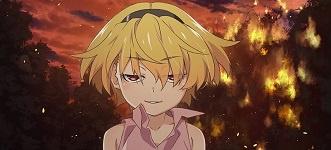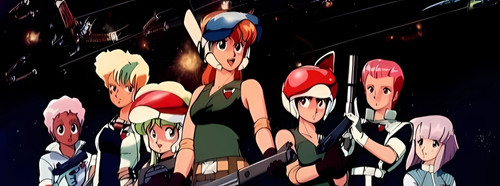Now that you mention it, I'm curious about this as well. What comes to mind is the anime Rurouni Kenshin. It takes place not long after the beginning of the Meiji era. Many of the characters long for the (relatively) old days where warriors fought with honor...some wishing to normalize sword battles again.
So it's possible that this sentiment is at least partially derived from Japan's violent past and swordsmen's spirit, so to speak.
It also seems likely that some still bear resentment toward their defeat in World War II.
Ah, heck, I might as well put your thread into an AI and see what it says:
The trope of "peace making people weak" in Japanese anime and manga reflects a complex set of anxieties about national identity, masculinity, and social stagnation that have deep roots in Japanese history and post-war society. It is not a literal call for war but a metaphorical criticism of perceived societal ills, drawing on historical and cultural contrasts.
Here's an explanation of this phenomenon:
1. The historical critique of the Heian period
The Heian period (794–1185) is often seen as a historical precedent for the dangers of prolonged peace.
A peaceful golden age: This era was a time of immense cultural and artistic refinement among the imperial court, leading to masterworks of art and literature.
The price of peace: Despite the cultural achievements, the court became politically isolated, focused on courtly intrigues and aesthetic pursuits while neglecting military and economic affairs.
Loss of power: This aristocratic detachment led to the erosion of imperial power and the rise of the samurai warrior class, who eventually took over in the Kamakura Shogunate.
Modern parallel: The "peace makes people weak" trope mirrors this historical narrative. It warns that a society too focused on material comfort, art, or bureaucracy can become stagnant and unable to defend itself against internal or external threats.
2. Post-war anxieties about pacifism and national identity
After World War II, Japan was legally forbidden from maintaining an offensive military force, and pacifism became a central pillar of its post-war identity. The trope critiques the perceived consequences of this absolute pacifism.
Loss of spirit: Some cultural commentators argue that this pacifist identity, combined with decades of economic comfort, has dulled Japan's "warrior spirit" or sense of national purpose. The trope raises the question of whether this generation has grown soft and unready for hardship.
Economic vs. ethical strength: The villains in these stories often contrast Japan's economic success with a perceived ethical or spiritual weakness. A comfortable, capitalist society is portrayed as having lost its moral compass, sacrificing tradition for a soulless consumer culture.
Victim vs. actor narrative: The post-war pacifist narrative in Japan often emphasizes Japan as a victim of the atomic bombs, sometimes downplaying its own wartime aggression. The "peace makes people weak" trope can be interpreted as a reaction against this "victim narrative" and a push for a stronger, more assertive national identity.
3. The psychological craving for purpose and chaos
The terrorist or "man-on-the-street" characters your friend mentioned often voice a more individual and anarchistic motivation, similar to the Heath Ledger Joker archetype.
An antidote to boredom: For these characters, a long period of peace and order has resulted in a world without meaning or challenge. In their view, "peace" is a suffocating status quo that needs to be shattered to reveal a more "authentic" reality.
The chaos-bringer: Like the Joker, these figures believe that the true nature of humanity is barbaric and that order is an illusion. They want to disrupt society to force people to face their inner darkness and raw survival instincts, believing that this will reveal their true selves.
Internal vs. external threats: The sentiment is not a longing for a feudal system but a belief that humans need struggle and conflict to be their best. These characters often argue that an "inner peace" is not earned without overcoming personal or societal conflict.
Summary: What the lunatics mean
The "we've been at peace too long" sentiment is a narrative device that taps into anxieties about Japan's past and future. The characters expressing this idea are not necessarily dreaming of a feudal revival but are articulating specific fears and criticisms:
National criticism: An alarmist critique that Japan's post-war pacifism has caused a loss of national strength and a decline in cultural integrity.
Social critique: A concern that prolonged prosperity has created a weak, materialistic, and spiritually empty society.
Psychological critique: A desire for a return to a more "authentic" state of struggle and chaos, which some characters believe is necessary for growth and purpose. |


